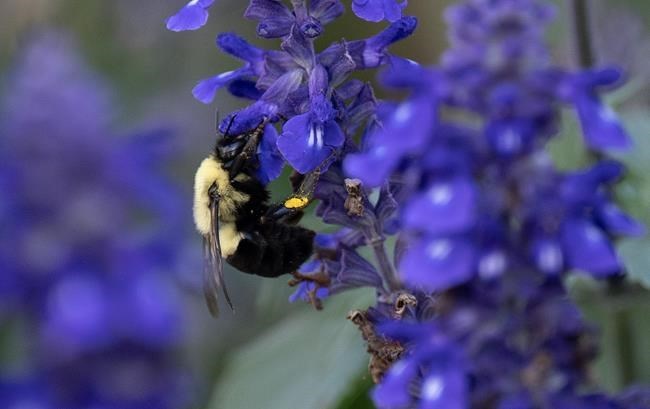The mix of urban birds, bugs and other critters that humans have grown familiar with is due for a big shift because of climate change, a new study says.
"The nature that people interact with isn't what's in Banff or some provincial park," said Alessandro Filazzola, lead author of a paper published Wednesday in the journal PLOS One. "It's in their backyard.
"Cities don't move. If you're staying still while the world is moving around you, what's going to happen to all the wildlife that you're familiar with?"
To answer that, Filazzola, from the University of Toronto's Centre for Urban Environments, conducted a simulation combining eight different climate models with an enormous data set that detailed sightings of 2,019 different species from 60 cities around North America.Â
That combination allowed him and his colleagues to estimate how common each animal is in its current environment, how widely it's distributed and how climate changes such as temperature and precipitation could affect its future.
On the one hand, cities with temperate climates such as those in Canada could welcome new animals.Â
By the end of the century, cities such as Ottawa and Edmonton could become hospitable for hundreds of new species while losing habitat for a couple dozen.Â
Quebec City is the champion. Filazzola's simulation suggests the Quebec capital could support more than 500 new species.Â
"When we get these slightly warmer temperatures and changes in precipitation patterns, a lot more species are coming in than they are leaving," he said.Â
On the other hand, the animals most likely to take advantage are the ones already widespread. Local specialists are likely to lose out.
"If a species is widely distributed, like raccoons, the likelihood of climate change making them leave a city is really low. It's in the localized species — the ones you only see in a couple cities — that you see the change."
And many of those new arrivals are likely to be insects. Varieties of centipedes, butterflies, spiders and cockroaches are all likely to pop up in places they've never been before, Filazzola suggests.Â
Songbird distribution is likely to drop. Foxes, too. But if you like pelicans, you may be in for a treat. Same with various kinds of lizards.Â
The cities most likely to be net losers of species, the study suggests, tend to be in the southeast United States. Atlanta is set to suffer the most.Â
Filazzola cautions that the projections in his study won't necessarily come to pass. Climate isn't the only factor that influences where a species is able to live.Â
"There's lots of reasons why or why not a species would live in a city. There could be no food when it gets there, there could be a predator that eats it."
But change is coming, he says, and not just to the large landscapes we tend to think of when we talk about nature.Â
"We take for granted what's going on in our backyard. But there's a lot going on there other than a few common species."
The wholesale shift that could be on its way has implications for pest control and other services that rely on the environment. And it could change how we feel about our own habitat.Â
"Imagine hearing different birds in the morning when you go out to have your coffee," Filazzola said. "It means a lot."
This report by The Canadian Press was first published March 27, 2024.
Bob Weber, The Canadian Press



